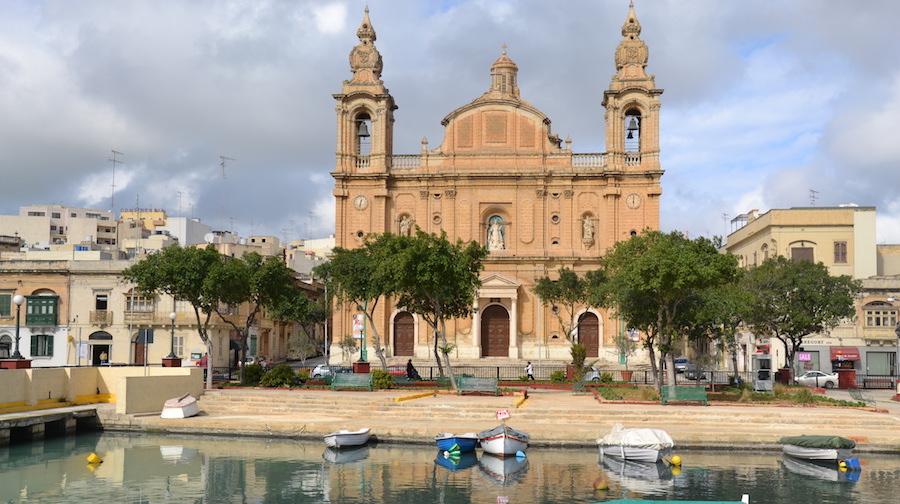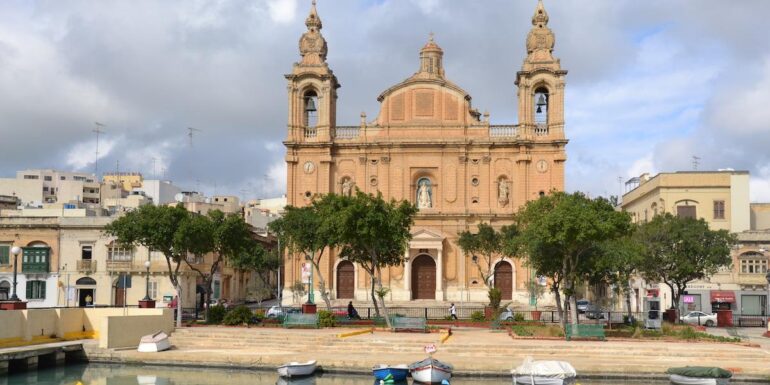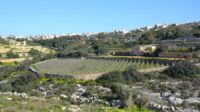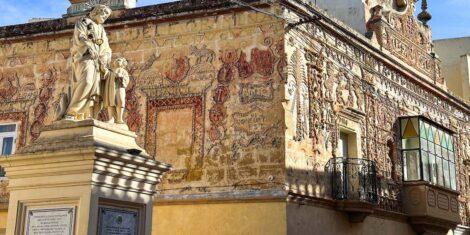Most people born and raised in Malta will have heard or studied the story of ‘Ġaħan u l-Bieb’. For non Maltese speakers, this means Ġaħan and the Door. This happens to be Malta’s most famous tale. It is a light hearted and comedic story about a glib young man.
The Evolution of the Character
To preface, the narrative combines farce in combination with wordplay. In some way it becomes written or spoken sitcom. Ġaħan, the main character appears in other stories of humorous situations. This story of the door was just one of many. Our hero, Ġaħan, was known for absurd and unexpected behavior.
Through time, the story became more of a reference. The character broke through the fictional world and became part of the general consciousness. So much so, that there’s been many dramatic and literary reimaginings of the character. The most recent one is a satirical novel titled Ġaħan fl-Aqwa Żmien (Ġaħan in the Golden Age).
Ġaħan and the Door
The story goes that one Sunday morning Ġaħan’s mother got ready to go to mass. She wanted to go a bit early. Seeing as her son was still in bed, she told him that she was leaving. At the door, she said ‘ Qis li tiġbed il-bieb warajk‘ which in English translates to ‘Don’t forget to pull the door behind you when you leave’.

Ġaħan then replied ‘Don’t you worry about it’, and that was that.
He then got up, got ready, went to leave the house and grabbed the door knocker. He pulled the whole door off its hinges—as his mother had told him to do, right?
Proceeding to go to the church, he dragged the door right to where his mum was sitting. Naturally, her reaction was one of embarrassment. She asked him ‘What are you doing?’ whilst he replied ‘Isn’t this what you told me to do?’.
Ġaħan comes to Malta
This story is actually of origins beyond the islands. It’s certainly been around for quite a while but it is hard to trace exactly since when. In the mid 1800’s there was a local newspaper bearing the name of Ġaħan, so clearly at this point it was already part of people’s vocabulary.
What we can assume from this is that the character existed by word of mouth in the oral tradition of storytelling. In addition, since the ‘door’ story can be found in North African Arabic, Turkish, Sicilian, southern French and even Spanish, this character is clearly a folk anti-hero of the Mediterranean.
The Multi-faceted Character
In an essay by Ġorġ Mifsud-Chircop titled ‘A Wise Fool’s Anecdotal Cycle in Malta: A Reappraisal’, the author makes some interesting points where he also brings out the significance of this character.
If we consider the character in the series of stories about him, he is not simply the fool or the ‘village idiot. He can actually be perceived as a trickster. Someone who challenges authority, and someone who has a way of playing with fire. That’s quite a valuable character in the general consciousness of a culture.
There is a certain reveling in the chaos caused by or around the character which he seems to point out still exists in Maltese humor nowadays. I think there is a lot of truth in this.

The Ġaħan in Today’s Language
Just think of the ironic humor used between colleagues at work, and the occasional inhibition of the fool. Imagine going to work and finding the usual street you use to commute closed due to roadworks.
Now imagine arriving at work and saying the line ‘I was driving to work as usual, and as I came upon this road I just saw there was roadworks so I couldn’t pass, so I had to take another longer route.’
Imagine someone then asks the question ‘Wasn’t there like a sign or something before the closed area?’. The response typically is ‘Of course not! Why bother doing that?’. Naturally, this is said with an implied sense of irony, and in doing so there is a very strong socially critical tone towards, in this case, a lack of consideration and forward thinking.
Of course here I’m using the name of the character just to indicate a certain attitude which I find is very Mediterranean and makes humor a way to get through the day.















